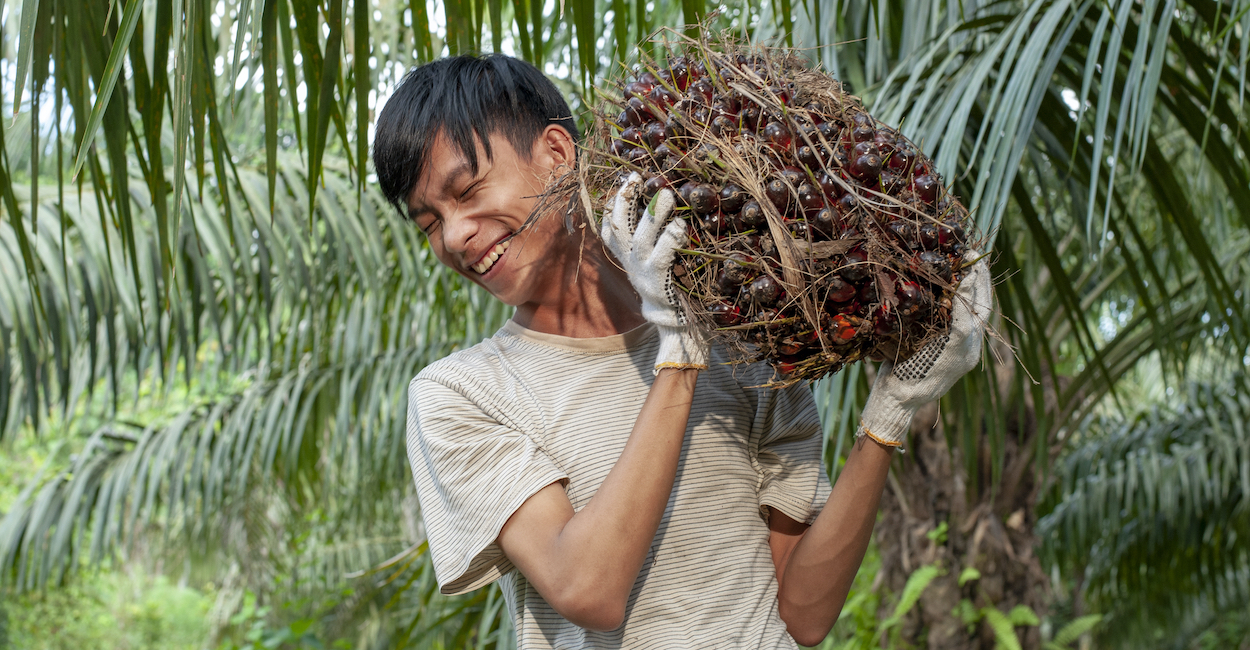By Brian Monteith – 3 minute read
THIS IS A TALE of how the EU uses regulations, quotas and tariffs to erect a Fortress Europe that exports poverty to developing nations through the protection of its inefficient and unsustainable agriculture. In this case it is the protection of the huge European vegetable oil industry.
There are two certification schemes designed to encourage sustainable farming of palm oil in Malaysia, the Roundtable Sustainable Palm Oil (RSPO), which is an international scheme, and the Malaysian Sustainable Palm Oil (MSPO), established in the country itself. The MSPO has the same aims as the RSPO but is more inclusive as it aims to bring in smallholder farmers and make them more accountable for their actions and farming practices. It is also much cheaper for smallholders to participate than RSPO, which is aimed at larger corporate entities with deep pockets. The RSPO has a ‘voluntary’ code which issues guidance, whereas the MSPO requires all participants to adhere to its mandatory rules and standards.
Besides its importance for Europe, oil palm farming provides an income for over seven million smallholder famers globally. These farmers are crucial to the socio-economic development of their communities. In Malaysia, palm oil has been a key contributor to reducing poverty from 50% in the 1960s to just 5% today, with smallholder production accounting for 40% of total palm oil plantation areas.
While the RSPO recognises the key role traceability plays in enhancing sustainability, it falls short on addressing the needs of smallholder farmers and the demands placed upon them. In comparison, the MSPO covers around 96% of all palm oil farming in Malaysia by including smallholders – who are attracted to it because of its lower compliance and zero membership costs compared to the RSPO, which favours larger more corporate entities.
The EU’s anti-deforestation legislation recognises only farms that are signed up to the RSPO – pushing European import companies to consider smallholder farmers as being too risky to have in their supply chain because they are not likely to meet the requirement of the EU or RSPO. The consequence is smallholder farmers will be forced out of the market, which will have direct social and economic impacts on communities that are reliant on export-related incomes to meet their basic economic and financial needs.
The MSPO has supported the UN’s Sustainable Development Goals 2030, by placing a greater High Conservation Value (HCV) requirement on the palm oil industry so that since December 2019 there will be no conversion of natural forest and protected areas with a High Conservation Value. Also included is a Green House Gas calculation for the entire supply chain and a traceability system to ensure confidence. The EU chooses to ignore this strict process, whereas reports suggest the UK is about to recognise it.
The MSPO requires independent environmental, social impact assessments and HCV are conducted and reviewed prior to land conversion and replanting and strictly states that no forms of forced or trafficked labour as well as child labour are used. The MSPO’s objectives are based on national and regional regulations, standards, licensing, and industry best practices requirements. As such the MSPO works more closely with the Malaysian state governments to resolve land issues, in particular in relation to smallholders to improve the MSPO traceability system for the whole supply chain. The EU chooses to disregard these achievements.
In order to increase sustainability of palm oil farming, there needs to be greater involvement of every participant in the supply chain. To achieve this, the number of MSPO-certified smallholders needs to be increased, and the MSPO is achieving that – but the EU puts all of this at risk.
A more cohesive and inclusive certification scheme – like the MSPO – will enable the full participation and compliance of the Malaysian palm oil industry’s stakeholders, from nurseries to smallholders to large plantations, mills and refineries, and not just big corporates who enjoy the benefits of size, scale, and much deeper pockets.
Local certification schemes like the MSPO have an important role in supporting the due diligence and risk mitigation processes of operators and traders and must be recognised as such. Only the EU can explain why it has refused to work with the MSPO certification scheme – making imports of sustainable palm oil more expensive – and putting the drive towards sustainability in danger in the process.
If you If you appreciated this article please share and follow us on Twitter here – and like and comment on facebook here. Help support Global Britain publishing these articles by making a donation here
Brian Monteith is a communications consultant of forty years experience, working initially in the City and then internationally in Africa ,the Caribbean and Asia. A former member of the European and Scottish parliaments, he is Director of Communications at Global Britain.
Photo of palm oil kernels from Pixabay.

